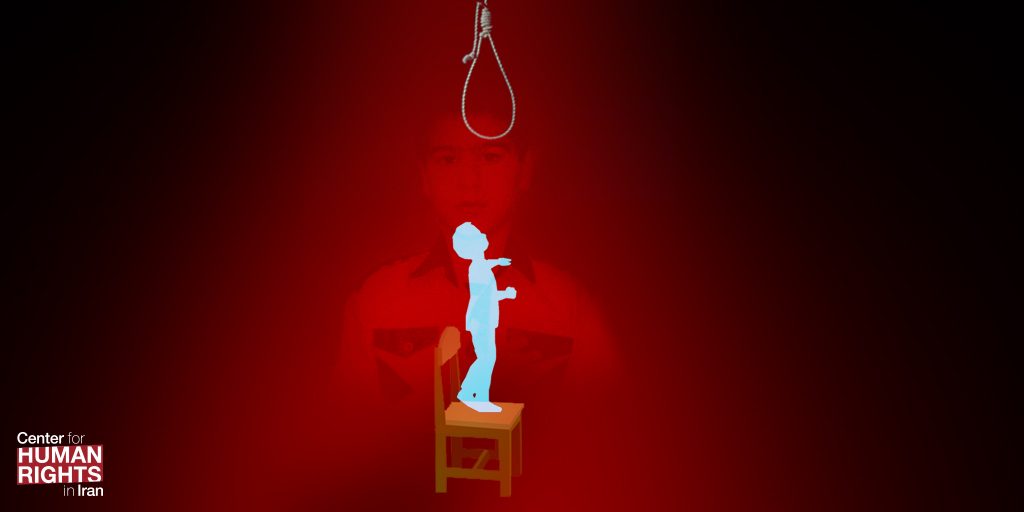Lawyer of Juvenile Offender on Death Row Says Client Mohammad Kalhori Should be Pardoned

MARCH 1,
2019
Despite being diagnosed with
mental and emotional disorders, Mohammad Kalhori is facing imminent
execution in Iran for a crime he allegedly committed at the age of 15, his
attorney Hossein Aghakhani told the Center for Human Rights in Iran (CHRI) on
February 28, 2019.
With the sentence already
issued and confirmed, Kalhori’s lawyer has asked the victim’s family to pardon
him on the grounds that he was just a minor without mental maturity at the time of the crime,
as allowed by the presiding court in the city of Boroujerd, Lorestan Province.
“Unfortunately, my client’s
execution order has gone through the full judicial process and he could be
hanged at any moment,” Aghakhani told CHRI. “The enforcement office has told
his family that time is limited and if they don’t get a pardon from the victim’s
family, he could be hanged soon.”
“[The victim Mohsen]
Khashkhashi’s family has so far refused to grant a pardon but on the other
hand, there is evidence and medical documents to show that the judiciary should
have reviewed the death sentence because of my client’s mental and emotional
disorders,” he added.
On February 21, the UN called on Iran to “halt the execution of
this child offender and immediately annul the death sentence against him, in
line with its international obligations.”
According to the International Covenant on Civil and Political Rights and the Convention on the Rights of the Child, it is illegal to execute someone for crimes committed under the
age of eighteen. Iran is party to both treaties but remains one among a handful
of countries still putting juveniles to death.
According to Article 91 of Iran’s Islamic Penal
Code, “If mature people under 18-years-old do not realize the nature of the
crime committed or its prohibition, or if there is uncertainty about their full
mental development, according to their age” they can be spared the death penalty.
In September 2016, Branch 2 of
the Criminal Court in Lorestan sentenced Kalhori, who was born in March 1998,
to death for murdering his teacher in November 2014. In April 2016, the medical
examiner of Lorestan Province determined Kalhori was not mentally mature when
the crime was committed.
“My client was 15 when the
murder happened,” Kalhori’s attorney, Hassan Aghakhani, told CHRI on February
22, 2018.
“According to the medical
examiner’s opinion, his action was not based on reason or logic and he was
lacking mental development,” he added. “His adviser in the juvenile reform
center also says that he didn’t have the mental ability to understand his
action.”
The attorney added: “Article 91
of the Islamic Penal Code should be applied to him
but unfortunately, the court has not paid attention to this matter.”
Interference with the Judicial
Process
Aghaghani told CHRI that his
attempts to reverse the death sentence had been unsuccessful because a deputy
education minister and an influential member of Iran’s Parliament had asked the
court to “look after” the victim’s family.
“We lodged an appeal and made
two requests [in June and October 2017] for a judicial review by Branch 33 of
the Supreme Court presided by Judge Mohammad Niazi,” Aghaghani said. “But
[Judge Niazi] believes in retribution.
When it was time to consider
the appeal, unfortunately there was a letter from a deputy education minister
and two letters from Alaeddin Boroujerdi, who is the member of Parliament from
Boroujerd [city] and chairman of the Parliamentary Committee for National
Security and Foreign Policy, requesting that the judge to look after the
victim, not the murderer.”
Aghakhani continued: “When it
was determined that my client did not have sufficient mental development, we
did not expect the political and security officials to get involved. This kid
could have been saved if the law followed a normal course, without the court
being influenced by the political climate, but unfortunately, they interfered
in this case.”
Kalhori killed his physics teacher,
Mohammad Khashkhashi, with a pocket knife after allegedly being physically
attacked for alleged disobedience on November 22, 2014, at the Hafezi High
School in Boroujerd, Lorestan Province.
“At the preliminary stage
[March 2016], Branch 1 of the Criminal Court in Lorestan Province sentenced my
client to three years in prison and ordered him to pay blood money to the
victim’s parents,” Aghakhani told CHRI.
“But the victim’s family
appealed the decision [in September 2016] and Branch 31 of the Supreme Court
struck down the ruling and ordered a new trial, which resulted in a death
sentence against my client without regard to Article 91 of the Islamic Penal
Code,” he added.
According to Islamic law,
Diyah, known as “blood money” in English, is paid as
financial compensation to the victim or heirs of a victim in cases of murder,
bodily harm, or property damage.
Kalhori has been held at a
juvenile rehabilitation center in Lorestan Province since November 2014.
No comments:
Post a Comment